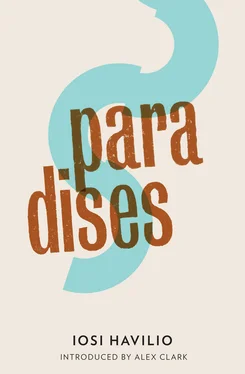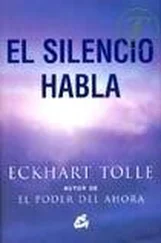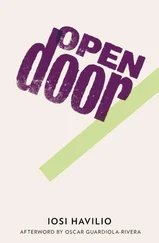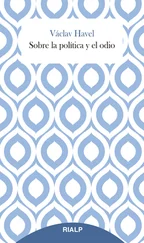Héctor and Marta walk in single file to the stairs; one of the twins, I’ll never be able to remember their names, turns his head before disappearing to check whether I’m following them, looking slightly put out, who knows why. I pick up Simón, who doesn’t wake in spite of all the commotion, the conversations flying around him and the noise from the floor below, which by now sounds more like a party than a wake. On the way out, I discover a little pile of ashes and cigarette stubs, swept into a corner but not yet thrown out.
When we reach the street, Héctor gestures to say he’s forgotten something. I’ll just be a minute, he says, pushing back through the tinted glass door. As they wait, the twins start to argue. One wants a hamburger, the other pasta. Honestly, boys, Marta says indignantly. An ambulance identical to the one I saw in the garage arrives at full speed and brakes sharply in front of us. From the driver’s side, a short man with a beard gets out, in a nurse’s uniform, and runs into the funeral home. I wonder whether those girls are still painting their toenails. Héctor reappears and says in a low voice to Marta and me: I went to ask them to close the coffin so that he doesn’t spend all night on show.
In a daze, or perhaps not, perhaps just to take our minds off things, Héctor chooses a pizzeria half a block from the basilica. It couldn’t have been noisier. Stragglers from the rock festival move around us: gangs of boys and girls, singing, trucks with equipment, lots of mess. The next room has table tennis and pool tables. At the back, a row of bowling lanes separated from the dining room by a transparent screen that doesn’t quite reach the roof.
Initially we sit there feeling rather uncomfortable. In fact, before we are served, Marta will suggest to Héctor more than once that we look for somewhere else. Yes, he’ll say, I didn’t realise but we’re here now. Marta shakes her head but doesn’t back down. She just protests: Honestly, Héctor.
As the minutes pass, it feels as though all the various sounds in the place are helping us fill the void. Random shouts of triumph; cursing; the sound of balls hitting the wooden floor and skittles toppling, sometimes all at once, sometimes out of time; the waiters’ orders as they pass in front of the till with loaded trays, never stopping; and snippets of conversation from the tables around us.
Héctor and the twins devour the pizza without chewing, at record speed. Marta gestures with her hand for them to slow down, but they take no notice. I’m given two slices of napolitana and one of fainá flatbread. I eat with no appetite, out of habit. The pizza is topped with mashed hard-boiled egg, which makes it difficult to chew. More than once I have to hold down a retch.
Are you still hungry? Héctor asks, standing up. He goes out to smoke, the twins go to the toilet together and take half an hour to return. I’m left alone with Marta. She stretches out her arm and offers me her palm. I hesitate, I’m not in the mood, but it would be much more difficult to refuse, so I copy her movement and put my hand in hers, which she immediately covers with her free hand. It’s as though we’re going to make a promise to each other. She looks me in the eye silently and finally says: You have so much yet to live.
Héctor returns, orders another beer and we start chatting. In reality, they talk and I listen, occasionally emitting a Yes. The topic of conversation is roads, accidents, the brutality of lorry drivers and Jaime’s carelessness. Why on earth did he stop there? protests Héctor. If he’d just pushed the truck a few metres further in, he’d still be with us. What a man, he keeps saying, and Marta pacifies him by squeezing his wrist. I come out in his defence: But he was always so careful. They look at me in unison, reprovingly, as if I spoke unknowingly, as if I’d never met the real Jaime, and once more I feel like a perfect intruder. Luckily, Simón wakes up and his ill humour makes us forget everything for a while.
In a daze, understanding little of anything, Simón puts pieces of pizza in his mouth and magically wakes up. More beer and Héctor starts ranting about the folk from the other wake. How disrespectful. Back and forth, making a terrible mess, as if they were at a football match. Marta says that everyone says goodbye to their loved ones as they see fit. The discussion grows heated, I follow fragments of it, busy ensuring that Simón doesn’t stray too far. Not so much out of fear as to keep Marta quiet, because she keeps throwing out warnings: Oh, I’m terrified he’s going to head over there, watch one of those balls doesn’t escape, she says pointing at the pool tables.
On the return journey it wants to rain but doesn’t. Just a few insignificant drops land on the umbrella, you could count them if you wanted. Not even a drizzle. Instead, the night is cooling quickly, winter’s last effort. I sit behind the twins, who are entertaining themselves with a hand game. As soon as the car pulls out, Simón falls asleep for the third time since we left home. Neither Héctor nor Marta speaks to me for the entire journey. Nor do they say much to each other, just a few short phrases; they can’t agree whether the boys should go to school the next day. Two or three times, Marta will point out the fuel needle, already in the red. There’s more than enough, Héctor will reply.
We leave the Camel sign behind; no one says anything. As if we had come to a mutual agreement, out of respect for Jaime and for fate. We take the dirt track towards the farm in the deepest darkness. Several winds get up at once, whirling the air in all directions. The car’s headlights form a long cone of light full of milling dust. I’m not wearing a jacket, nor is Simón; I never thought the cold would return.
When we finally arrive, Marta caresses my cheek over the back of the seat, one of the twins says Bye, the other stays silent. I carry Simón, who is lying almost crossways, like a pennant. I’m shivering. Héctor waits by the gate with his hand on the latch until we get out of the car. He hurries us a bit. It’s ridiculous for him to drop us so far from the house, he doesn’t even suggest the possibility of taking us right up. Nor does he justify himself. He doesn’t want to come in, to see what his dead brother left, he prefers the distance. In a sense I understand him. With one foot in the car and the other on the ground, before he gets in and shuts the door, Héctor grabs me by the arm, drawing me towards him, and says, very close to my face, his breath smelling unmistakeably of pizza and beer: You have to be strong, things will sort themselves out, you’ll see.
I had to imagine Jaime’s burial. It rained all night and the taxi wasn’t able to pick us up. Héctor phoned to let me know: The man says the road is impossible. Anyway, he added after a silence, a bit of interference or a drag on a cigarette: Why such a long send-off? Héctor sounded annoyed, angry, a far cry from the friendly, affectionate tone of the previous day. It must have been lack of sleep and the certainty that death, after the initial novelty, brought nothing but complications and desolation.
I imagined a small, hurried burial, the duty priest going through the motions of a quick prayer, not wanting to get wet. I imagined a sober tombstone, no epitaph. I imagined Jaime, his mouth stuck in that sarcastic smile for all eternity. I thought about all those things his eyes suggested when we were face to face, things that came out suddenly, all at once, not in words but in grunts or kicks, always clumsy. I also imagined that if he woke up, which they say happens once in a million burials, because he’d been taken for dead when he was just unconscious, Jaime wouldn’t go crazy, beating the coffin lid for someone to open it. Instead, he would calmly consume the air he had left, guessing at the grain of the wood in the darkness.
Читать дальше











